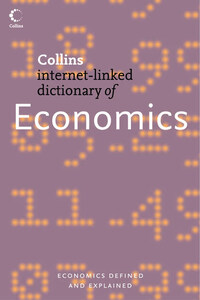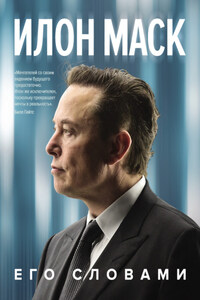Collins dictonary of
Economics
fourth edition
Christopher Pass, Bryan Lowes
& Leslie Davies
William Collinsâ dream of knowledge for all began with the publication of his first book in 1819. A self-educated mill worker, he not only enriched millions of lives, but also founded a flourishing publishing house. Today, staying true to this spirit, Collins books are packed with inspiration, innovation, and practical expertise. They place you at the centre of a world of possibility and give you exactly what you need to explore it.
Collins. Do more.
This dictionary contains material especially suitable for students reading âfoundationâ economics courses at polytechnics and universities, and for students preparing for advanced school economics examinations. The dictionary will be useful also to âAâ and degree-level students reading economics as part of broader-based business studies, commerce or social science courses as well as to students pursuing professional qualifications in the accountancy and banking areas. Finally, it is expected that the dictionary will be of interest to general readers of the economic and financial press.
The dictionary provides a comprehensive coverage of mainstream economic terms, focusing in particular on theoretical concepts and principles and their practical applications. Key economic terms are given special prominence, including, where appropriate, diagrammatic illustrations. In addition, the dictionary includes various business and commercial terms that are relevant to an understanding of economic analysis and applications. It is, of course, difficult to draw a precise dividing line between economic and economics-related material and other subject matter. Accordingly, readers are recommended to consult other volumes in this series, in particular the Collins Dictionary of Business, should they fail to find a particular entry in this dictionary. In the interests of brevity, we have kept institutional minutiae and description, as well as historical preamble, to a minimum.
To cater for a wide-ranging readership with varying degrees of knowledge requirements, dictionary entries have been structured, where appropriate, so as to provide, firstly, a basic definition and explanation of a particular concept, then leading on through cross-references to related terms and more advanced refinements of the original concept.
Cross-references are denoted both in the text and at the end of entries by reproducing the keywords in small capital letters.
We should to thank Edwin Moore and Clare Crawford for their excellent work in preparing the manuscript for publication. Particular thanks are due to Sylvia Ashdown, Chris Barkby and Sylvia Bentley for their patience and efficiency in typing the manuscript.
Christopher Pass, Bryan Lowes
ability-to-pay principle of taxation the principle that TAXATION should be based on the financial standing of the individual. Thus, persons with high income are more readily placed to pay large amounts of tax than people on low incomes. In practice, the ability-to-pay approach has been adopted by most countries as the basis of their taxation systems (see PROGRESSIVE TAXATION). Unlike the BENEFITS-RECEIVED PRINCIPLE OF TAXATION, the ability-to-pay approach is compatible with most governmentsâ desire to redistribute income from high income earners to low income earners. See REDISTRIBUTION-OF-INCOME PRINCIPLE OF TAXATION, POVERTY.
above-normal profitorexcess profit a PROFIT greater than that which is just sufficient to ensure that a firm will continue to supply its existing product or service (see NORMAL PROFIT). Short-run (i.e. temporary) above-normal profits resulting from an imbalance of market supply and demand promote an efficient allocation of resources if they encourage new firms to enter the market and increase market supply. By contrast, long-run (i.e. persistent) above-normal profits (MONOPOLY or super-normal profits) distort the RESOURCE ALLOCATION process because they reflect the overpricing of a product by monopoly suppliers protected by BARRIERS TO ENTRY. See PERFECT COMPETITION.
above-the-line promotion the promotion of goods and services through media ADVERTISING in the press and on television and radio, as distinct from below-the-line promotion such as direct mailing and in-store exhibitions and displays. See SALES PROMOTION AND MERCHANDISING.
absenteeism unsanctioned absences from work by employees. The level of absenteeism in a particular firm often reflects working conditions and morale amongst workers in that firm and affects the firmâs PRODUCTIVITY. See SUPPLY-SIDE ECONOMICS.
Fig. 1 Absolute advantage. The relationship between resource input and output.
absolute advantage an advantage possessed by a country engaged in INTERNATIONAL TRADE when, using a given resource input, it is able to produce more output than other countries possessing the same resource input. This is illustrated in Fig. 1 with respect to two countries (A and B) and two goods (X and Y). Country Aâs resource input enables it to produce either 100X or 100Y; the same resource input in Country B enables it to produce either 180X or 120Y. It can be seen that Country B is absolutely more efficient than Country A since it can produce more of both goods. Superficially this suggests that there is no basis for trade between the two countries. It is COMPARATIVE ADVANTAGE, however, not absolute advantage, that determines whether international trade is beneficial or not, because even if Country B is more efficient at producing both goods it may pay Country B to specialize (see SPECIALIZATION) in producing good X at which it has the greater advantage.








